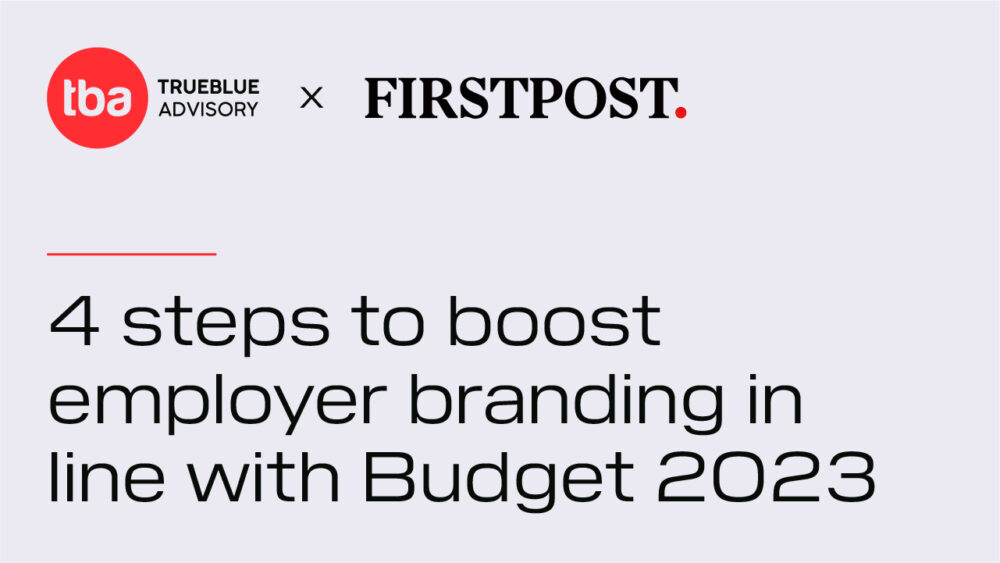Employer branding is the process of promoting a company’s image as an employer of choice to potential and current employees, as well as to the public. It is becoming increasingly important for institutions, both public and private for various reasons.
Why employer branding is essential for institutions:
Helps attract the best talent by showcasing the company’s values, culture, and opportunities for growth and development. This can help a company to stand out among competitors and attract the best candidates for open positions. This results in higher productivity and competitiveness for the company, plus a more skilled and experienced workforce for the economy.
Better Employee retention and increased productivity:
A positive employer brand helps improve employee satisfaction and retention. This can ultimately result in lower turnover rates and recruitment costs for companies, which saves them money and increase productivity…towards an overall boost to the economy.
Improves public as well as global perception:
A strong employer brand helps improve a company’s public perception. When a company is viewed as a great place to work, it increases consumer trust and loyalty. This in turn boosts sales and revenues, thereby leading to a requirement for more workforce, increased job opportunities, higher GDP, and a standard of living for the citizens. A strong employer brand attracts foreign investment into the country, thereby giving an impetus to the economy.
Boosts foreign collaborations:
The company branding attracts the right fit for the organization. When great minds work at a great place, it helps attract foreign investment in the country, as companies would want to be associated with a reputed employer brand.
In order to encourage the employer branding industry in India, the Government of India needs to take the following four steps in the Union Budget 2023-24. This will also give a desired boost to the Indian economy in various ways:
1. Provide tax incentives
Tax incentives will encourage companies to invest in employer branding initiatives, which in turn will help to offset the costs associated with these efforts. This will not only improve the image of the workforce and business environment but also boost economic growth. Because brands will get noticed globally and thereby attract more foreign investment and talent to the country. This move will benefit the government internationally by showcasing the country’s commitment to creating a positive and attractive business environment for both domestic and foreign companies.
2. Establish a national employer branding database
The government should set aside a Budget to establish a national employer branding database that will help companies to share best practices and learn from one another. This database would greatly benefit the Indian government through an exchange of information and details that will help in creating a more productive and efficient workforce. This improves the international reputation of India Inc.
Besides, an improved reputation means better international relations and collaborations, and better FDI.
3. Provide training, education programs for upskilling
The government should provide training and education programs for upskilling employer branding companies. This can benefit India as a nation by ensuring that companies are better equipped with the knowledge and skills needed to establish and maintain a strong employer brand. It also promotes a culture of continuous learning and development within the employer branding industry, leading to innovation and growth in the sector as well. This needs to be done, to showcase that Make in India, is doing great at each level. We must upskill, to match the global competitiveness in the branding sector.
4. Encourage collaborations between companies, educational institutions
The Indian government should ideally set aside a budget where the push can be given for collaborations between companies and educational institutions, such as internships and mentoring programs. If this is done at the high school level, especially for the marginalized sections, it will help students to better understand the importance of employer branding and the role it plays in the job market. This will help them decide on a career beyond the mundane. It will create a more educated and skilled workforce. Additionally, this can help to bridge the gap between the education sector and the industry, resulting in more relevant and effective education for students and more qualified candidates for companies.
The government should also provide subsidies to companies to participate in national skill development programs. This will help companies to develop the required talent for their specific industry and attract top talent, especially from marginalised communities and underprivileged regions/masses.



Comments are closed.